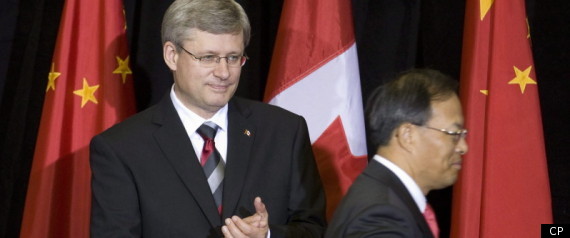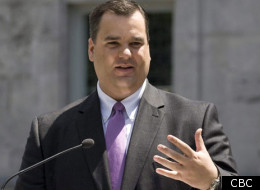Britain's
Guardian newspaper, founded in 1821 as the
Manchester Guardian, is making journalism history. The newspaper, owned and subsidized by the Scott Trust, has been instrumental this past year in two major episodes that are defining the ethics and practice of contemporary journalism. A year ago, the
Guardian sought out Julian Assange who was then just starting to attract attention as the founder of an organization called WikiLeaks. The full and fascinating story of how the
Guardian handled the WikiLeaks material is captured in the book
WikiLeaks: Inside Julian Assange's War on Secrecy by David Leigh and Luke Harding, two of the newspaper's lead investigative reporters (and published in the United States by PublicAffairs in February).
Now the
Guardian is again at the center of a news story of enormous importance, both in substance and in how journalism functions. The newspaper has taken the lead in breaking open the phone- and data-hacking scandal that poses probably the most serious threat to the future of Rupert Murdoch's News International in its decades of ascendancy as Britain's most powerful news enterprise (aside from the BBC) and, it is becoming increasingly clear, a source of criminal corruption. Murdoch already has been forced to close the 168-year-old Sunday tabloid newspaper, the
News of the World, running the risk that the paper's sacked journalists may sue News International; the British prime minister has said he would have accepted the resignation of the CEO of News International and one-time editor of the
News of the World, Rebekah Brooks; the deputy prime minister has recommended that News International "do the decent thing" and drop their attempt to take over complete control of the satellite broadcaster BSkyB. There are daily revelations as to whose phone records might have been hacked or stolen: Gordon Brown's doctors, Prince Charles and his wife, Prince William, and a raft of celebrities and sports stars.
The two crucial names in the investigation are, however, not as well known. The first is Gordon Taylor. He is the chief executive of the English soccer players' trades union, the Professional Footballers Association, whose cell phone was hacked by a private investigator hired by News International. In 2009, James Murdoch approved a settlement said to be worth around £1 million to Taylor in court costs and damages, but it was conditional on Taylor agreeing to the court records being sealed and that he would make no public statement about the content of the trial. Murdoch had bought his silence. Nick Davies, an investigative reporter at the
Guardian, pursued the attempted cover-up through his contacts in the legal world. Initially, Davies and the
Guardian were greeted by what investigations editor David Leigh described in an interview as a "fusillade of lies" from News International and the police, some of whose officers had illegally sold material to reporters. Even Britain's Press Complaints Commission accused the
Guardian of "exaggerating." For two years, Davies kept going, amid considerable hostility. The
Trinity Mirror papers, Associated Newspapers (publishers of the
Daily Mail), and News International, which includes the
London Times, were all but silent about the hacking story. When the story might have flagged, the
Guardian finally got support not from the British press but from the
New York Times, which sent three journalists to write a long piece for the
New York Times Magazine in September 2010, adding new details and fresh life to the investigation. The papers were also cooperating on the WikiLeaks revelations.
The second name, which transformed the power of the story, was that of an English schoolgirl. Millie Dowler was 13 years old in 2002 when she was murdered by Levi Bellfield. For six months, her body lay undiscovered and her disappearance was the subject of national attention.
The Sun, the
News of the World's daily sister paper, offered a reward of £100,000. That was not all. Journalists at News International, it was later revealed, had hacked Millie's phone records, hindering the police investigation and causing enormous distress for the family of the missing girl. The British public, which had not been unduly angered about the invasion of privacy of stars and politicians, was outraged. The lack of respect shown to a dead schoolgirl and her distraught, grieving family brought the
News of the World to its knees because, among the public, it "touched a huge emotional button," according to Leigh.
Suddenly, as the
Guardian's story resonated across the U.K., the two-year investigation blew wide open, finding its way into the media around the world. The public was made starkly aware that nearly anyone could be the victim of a grotesque invasion of their privacy. Almost overnight, News International acquired pariah status, the share price of BSkyB fell as the takeover seemed in jeopardy, and the
News of the World was shuttered. Leigh compares Nick Davies to Woodward and Bernstein: he was one dogged reporter who broke the story in the face of widespread institutional denial. But Davies needed a strong editor and paper at his back. Alan Rusbridger, editor in chief of the
Guardian, gave the story his staunch support partly because he had for years been arguing that the U.K. press inadequately policed its own standards and would eventually be punished. He broke the unwritten gentlemen's agreement that newspapers don't criticize the behavior of rival newspapers, that you don't "piss on your own," as one journalist put it. The fact that the
Guardian is owned by a trust, and therefore is not beholden to owners or shareholders who might in such situations be put under pressure, allowed the paper to keep going when the denials were at their fiercest. As Leigh put it, "we have pretty clean hands" and, in Alan Rusbridger, "the only guy willing to take on Rupert Murdoch."
Origin
Source: The Atlantic  Twice in 2010, the Humane Society of the United States snuck undercover, camera-toting investigators into factory-scale egg facilities, and both times they revealed savage animal-welfare and public-health abuses: everything from unpackaged eggs exposed to rotting hen carcasses to "trapped birds unable to reach food and water."
Twice in 2010, the Humane Society of the United States snuck undercover, camera-toting investigators into factory-scale egg facilities, and both times they revealed savage animal-welfare and public-health abuses: everything from unpackaged eggs exposed to rotting hen carcasses to "trapped birds unable to reach food and water."










